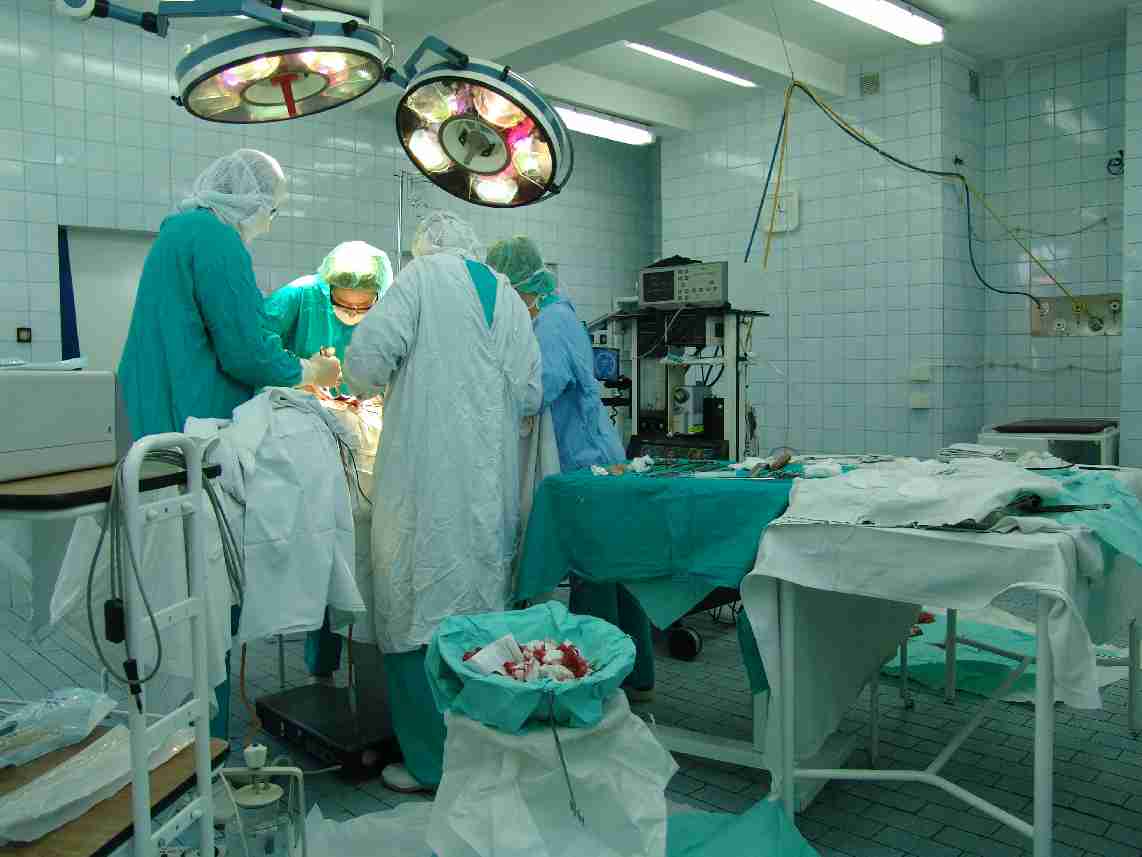Elective surgery is a medically necessary surgery that is scheduled in advance.
During the early stages of the Covid-19 epidemic in China, several patients underwent elective surgery.
At the time of surgery, it was not known that they have Covid-19. All the patients did not have any symptoms, although they carry the virus. They are asymptomatic carriers.
After the surgery, they developed had complications. The complications started about 2.5 days after the surgery. That is when they were tested for Covid-19. All were positive.
The study authors interpreted that the patients were infected with the SARS-CoV-2 virus before the operation but did not have any symptoms
A paper was done about those patients who had elective surgery. What happened to them serves as a cautionary tale for the rest of the world in this pandemic.
34 patients underwent different elective surgeries at Renmin Hospital, Zhongnan Hospital, Tongji Hospital, and Central Hospital in Wuhan, from January 1 to February 5, 2020.
The age range was 21 to 84 years, and the median age was 55 years, and 58.8% of the patients were women.
Types of Surgery and Level of Difficulty
The list of surgeries that the patients had are listed in the table below.
Level-1 is the lowest and Level-4 has the highest level of difficulty

What happened after the Surgery?
- All patients developed Covid-19 pneumonia shortly after the surgery. (average is 2.6 days).
- 44.1% of the patients needed admission to the intensive care unit (ICU) during disease progression
- 20.5% died after admission to ICU.
- The most common complications in those who died were Acute Respiratory Distress Syndrome (ARDS), shock, irregular heartbeat or arrhythmia, and acute cardiac injury
- The patients admitted to the ICU were older, have other medical problems, and underwent more complicated surgeries.
- The medical problems of those who went to the ICU were hypertension 38.2%,
malignancy 26.5%, diabetes 23.5%, and cardiovascular disease 20.6%.
Lessons to be Learned in this Small Study
- Surgery may accelerate the disease progression of COVID-19.
- Old age, comorbidities, surgical time, and difficulty of operation may be risk factors for poor outcomes.
- The mortality rate of Covid-19 patients who had elective surgery (20.5%) is much higher than the reported overall case-fatality rate of 2.3% in COVID-19 patients without surgery,
- The mortality rate of 20.5% is also higher compared to other ICU patients without Covid-19 (7.9%).
- Surgical stress during the incubation period of SARS-CoV-2 infection worsened disease progression and severity.
- Patients who have scheduled surgery during the pandemic need to be tested for Covid-19 even if they have no symptoms and defer the surgery if they are positive.
Feel free to share. Don’t miss an article. Subscribe for free with your email.
Don’t Get Sick!
Related Reads:
-
The Complete Covid-19 Articles
-
SARS-CoV-2 Contamination in the Hospital Setting
-
What Happens to Critically-ill Covid-19 patients?
-
The Covid-19 can Attack the Brain
-
Who Gets Cardiac Injury in Covid-19?
-
Can’t Smell and Taste Suddenly? It Can be Covid-19!
-
Not enough U.S. hospital beds one Covid-19 epidemic is full-blown
-
Lessons Learned from 72,314 COVID-19 Patients: A China CDC Study
-
Covid-19 Can Lead to Heart Failure
-
Reference:
Shaoqing Lei, Fang Jiang, Wating Su, Chang Chen, Jingli Chen, Wei Mei, et al. Clinical characteristics and outcomes of patients undergoing surgeries during the incubation period of COVID-19 infection. EClinical Medicine (2020) DOI: https://doi.org/10.1016/j.eclinm.2020.100331
Image Credit: By Piotr Bodzek, MD – Uploaded from http://www.ginbytom.slam.katowice.pl/25.html with author permission., CC BY-SA 3.0, https://commons.wikimedia.org/w/index.php?curid=372117
© 2018 – 2020 Asclepiades Medicine, LLC All Rights Reserved
DrJesseSantiano.com does not provide medical advice, diagnosis or treatment
Discover more from Don't Get Sick!
Subscribe to get the latest posts sent to your email.

























![❤[30 Natural and Soothing Sounds] Our white noise machine provides 30 soothing sounds, including 3 Brown noise, 2 White noise(White noise, Pink noise), 2 fan noises( Loud and Soft Fan), 8 lullabies and 15 natural sounds( Rain, Sea waves, Brook, Bird,...](https://m.media-amazon.com/images/I/31++gY58nyL._SL160_.jpg)




